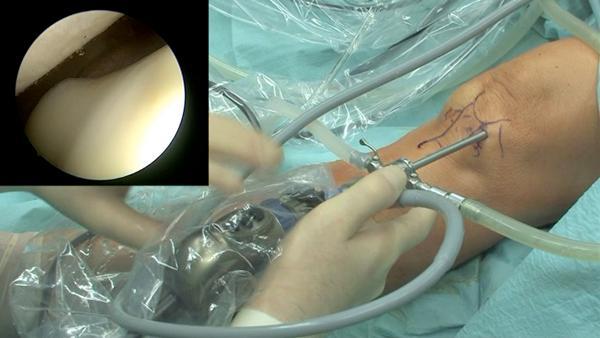Meniscus Arthroscopy Surgery
Meniscal tears are among the most common knee injuries. Athletes, particularly those who play contact sports, are at risk for meniscal tears. However, anyone at any age can tear a meniscus. When people talk about torn cartilage in the knee, they are usually referring to a torn meniscus.
You might feel a “pop” when you tear a meniscus. Most people can still walk on their injured knee. Many athletes keep playing with a tear. Over 2 to 3 days, your knee will gradually become more stiff and swollen.
The most common symptoms of meniscal tear are:
- Pain
- Stiffness and swelling
- Catching or locking of your knee
- The sensation of your knee “giving way”
- You are not able to move your knee through its full range of motion
- Without treatment, a piece of meniscus may come loose and drift into the joint. This can cause your knee to slip, pop or lock.
If your symptoms persist with nonsurgical treatment, The Orthopedic Surgeon can help you by performing arthroscopic surgery.
Here is an image of different types of tears
The Important Role of Arthroscopy
Knee arthroscopy is often done to confirm a diagnosis. It’s usually an outpatient procedure. In most cases, The Orthopedic Surgeon can actually treat your problem at the same time.
The Arthroscope
The arthroscope is a device that looks directly into joints. The arthroscope contains a light source, a camera and a pathway for fluids. An intense cool light is beamed into the joint. The camera sends an image of the knee joint to a monitor. Sterile fluid may be used to expand the joint. This makes it easier for the surgeon to work.
The Procedure
Lab tests may be done before your arthroscopy. On the day of your procedure, stop eating and drinking as directed. Just before the arthroscopy, you will receive anesthesia to make you comfortable. Then, a few small incisions (portals) are made in your knee. The portals are half an inch long or less. An arthroscope is inserted trough one portal, and The Orthopedic Surgeon will take a look inside your knee. Knee problems can often be treated with special tools inserted through the other portals.
Risks and Complications
As with any procedure, arthroscopy has risks. These can include swelling and stiffness, bleeding, blood clots, infection, or continuing knee problems.
If you need your knee scoped or if you need a Knee arthroscopy procedure email us please for more information at info@orthovallarta.com or call us Toll Free 866.509.0571 or internationally at +1817.405.2778



